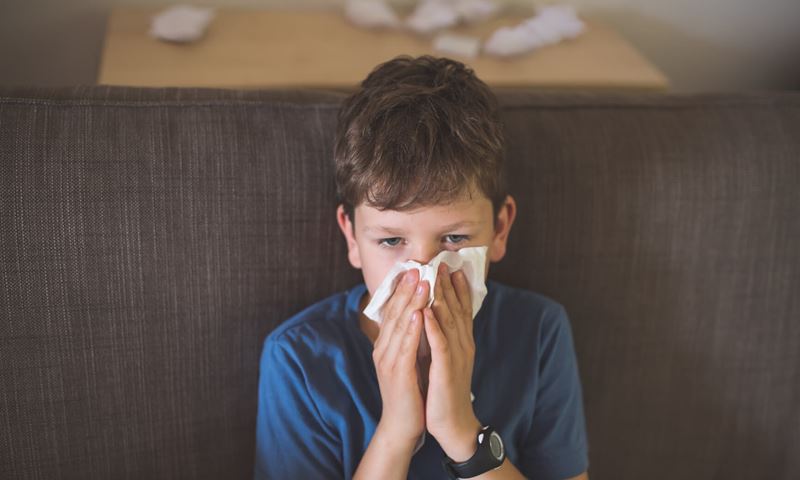Are you experiencing a runny nose, sneezing or coughing? Fever and chills? Is your inner hypochondriac desperately scrambling for a solution from WebMD or the local chemist? Looks like you may have fallen victim to the cold… maybe even the flu… but can you spot which one?
 Catching a cold and contracting the flu are two different things; however the two terms are often incorrectly used interchangeably. Their symptoms and remedies do show an overlap, which makes it all the more difficult to distinguish the presence of one and the onset of another. So how can you tell if you’ve just caught a cold, or if it’s about to get a whole lot more serious? We’re here to provide some basic markers for the common cold and flu.
Catching a cold and contracting the flu are two different things; however the two terms are often incorrectly used interchangeably. Their symptoms and remedies do show an overlap, which makes it all the more difficult to distinguish the presence of one and the onset of another. So how can you tell if you’ve just caught a cold, or if it’s about to get a whole lot more serious? We’re here to provide some basic markers for the common cold and flu.
What is a cold?
Colds are the most common illness in children and adults, especially in the winter season – hence the term ‘common cold’. According to the BetterHealth Channel, (the best source of quality assured health and medical information for Victorians) the cold can be caused by a large number of different viruses – about 200 as a matter of fact!
Not everyone will experience the same symptoms – that’s the joy of catching a cold. Don’t worry though; colds are considered ‘mild illnesses’. Codral Australia says the symptoms normally last 3-10 days, so you should be back on your feet within a week!
What is the flu?
In contrast, the flu is a viral infection that can cause serious illness and life-threatening complications – including pneumonia and bronchitis. It is highly contagious, spread by contact with fluids from coughs and sneezes.
There are three different types of human-based influenza viruses – it’s easy as A, B, C. Influenza A and B are the usual culprits, with both having the potential to cause major outbreaks and severe disease. You are more likely to contract the flu by being in contact with someone who already has it. Symptoms of the flu can last anywhere from a few days to a few weeks. Those with a healthy immune system will generally recover from rest and lots of fluid intake. If you are concerned from prolonged or exacerbated symptoms, best to seek advice from your local GP.
Cold vs Flu Symptoms
The most common symptoms of cold and flu, according to the BetterHealth Channel, can include:
| COLD | FLU |
|---|---|
|
|
Tips to avoid catching the cold or flu virus
 Funnily enough, there is no actual cure for the common cold. Because colds can be contracted from as many as 200 viruses, there is no targeted vaccine to immunise a human body from all potential bugs. So if everyone is susceptible to catching these viruses, what’s the best way to equip ourselves?
Funnily enough, there is no actual cure for the common cold. Because colds can be contracted from as many as 200 viruses, there is no targeted vaccine to immunise a human body from all potential bugs. So if everyone is susceptible to catching these viruses, what’s the best way to equip ourselves?
The avoidance strategy is the way to go. Where possible, keep your distance from anyone who is sick and minimise situations where germs can be easily transmitted.
The importance of practicing good hygiene is key. This means regularly washing your hands with soap and water, or using an alcohol-based hand sanitiser to remove potential germs picked up through the day. If you’ve got a cough, cough into a tissue and dispose immediately, otherwise use your shirt sleeve and wash your hands.
For the flu, receiving a yearly vaccination in the lead up to winter is the best way to prevent its onset, and any associated illnesses. The flu shot is recommended for everyone from 6 months of age. It’s also available free under the National Immunisation Program for people who face a high risk from influenza and its complications.
Treating colds and flu
Already been stung? We’ve been there, we feel for you.
BetterHealth Channel suggests that symptoms of the cold can be relieved in a few ways:
- Paracetamol in correct doses if fever is present
- Warm drinks to ease a sore throat or dry mouth
- Nasal drops or spray to ease a blocked nose
- Lozenges to soothe an irritated throat
For those with the flu:
- Rest – don’t try to be a hero: overworking yourself when your immune system is compromised will make you feel extra run down
- Stay at home – help your colleagues/friends and family stay immune by avoiding contact with others where and when possible
- Drink lots of good fluids – it’s simple, you need to replenish all that’s being lost through the feverish sweating
It’s useful to note that antibiotics should be avoided because colds are caused by viruses; whereas antibiotics are used to treat bacterial infections. Why not try the classic solution instead? Dig out the hot water bottle, get in bed and fuel up with some hot chicken soup.
Please note it is important to remember if symptoms persist to book an appointment with you doctor.



